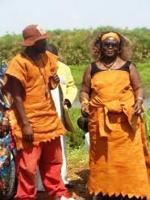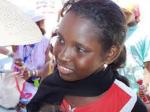How to stay healthy in Kenya
Do you want to find out how to enjoy a safe and healthy holiday in Kenya from my tips below? Here are the practical travel information on Health for Kenya including health services, money and costs, police and post.
Protect yourself from mosquitoes, as they carry numerous diseases such as dengue fever, malaria and yellow fever.
Get expert advice on malaria preventatives. Guard against mosquito bites. Wear long sleeves and long trousers and apply an effective insect repellent, for example, one containing DEET.
If travelling to other East African countries, you should have a yellow fever vaccination so as to prevent complications and paying of bribes at the border.
These can be administered at an affordable price at most reliable Nairobi clinics and hospitals. Malaria prophylactics can be highly effective. Consult your physician.
If you get flu-like symptoms, including fever, consult a doctor immediately. If no doctor is available, take a treatment dose of an appropriate anti-malarial and go immediately to a hospital. While the public hospitals are slightly cheaper, long waits and poor conditions and care at these facilities may make it worthwhile to go to a private clinic.
Costs will vary, but a typical trip to the hospital for malaria testing, doctor's consultation, and medication will cost between $12 to $30USD depending on the clinic. As malaria can become serious, a trip to the hospital is recommended at the first symptoms of malaria.
If you get such symptoms within twelve months of returning home, seek a doctor's advice very quickly and immediately tell him where you have been in the last year. Delayed treatment, even by just a few hours, can lead to permanent brain and liver damage or death.
Do not have unprotected sex as HIV/AIDS and other sexually transmitted diseases are a risk. The country's Adult HIV Prevalence rate (15th in the world) is over 6% or 1 in 16 adults. Voluntary Testing and Counseling (VCT) clinics offer free testing and counseling for HIV/AIDS.
Cholera is another danger. When in affected areas, see a doctor immediately and drink plenty of water. All water should be treated, either by boiling or through purifying tablets or filters. This includes Nairobi as well as rural areas.
Typhoid fever is a risk and, like malaria prophylactics, the vaccination is not 100% effective. All fruits and vegetables should be thoroughly washed. While eating from the roadside kiosks is part of the cultural experience that one should not miss, note that such places do not always have the highest sanitary conditions and stomach illnesses can result. It is advisable to have traveller's and accident insurance
Other Related Pages
Kenya Visa Guide › |
Learn Kiswahili in Kenya › |
Prohibited Immigrants to Kenya › |
Who Require a visa to Kenya › |
Scuba Diving in Kenya › |
Travel to Kenya by Bus › |
Self Drive to Kenya › |
Travel to Kenya by Plane › |
Travel to Kenya by Train › |
Travel to Kenya by Water › |
Travel to Kenya documents required › |
Travel in Kenya by Bus › |
Travel in Kenya by Jeep › |
Travel in Kenya by Matatu › |
Travel in Kenya by Self Drive › |
Travel in Kenya Train › |
Recent Articles
-
Garam Masala Appetizers ,How to Make Garam Masala,Kenya Cuisines
Sep 21, 14 03:38 PM
Garam Masala Appetizers are originally Indian food but of recent, many Kenyans use it. Therefore, on this site, we will guide you on how to make it easily. -
The Details of the Baruuli-Banyara People and their Culture in Uganda
Sep 03, 14 12:32 AM
The Baruuli-Banyala are a people of Central Uganda who generally live near the Nile River-Lake Kyoga basin. -
Guide to Nubi People and their Culture in Kenya and Uganda
Sep 03, 14 12:24 AM
The Nubians consist of seven non-Arab Muslim tribes which originated in the Nubia region, an area between Aswan in southern











New! Comments
Have your say about what you just read! Leave me a comment in the box below.